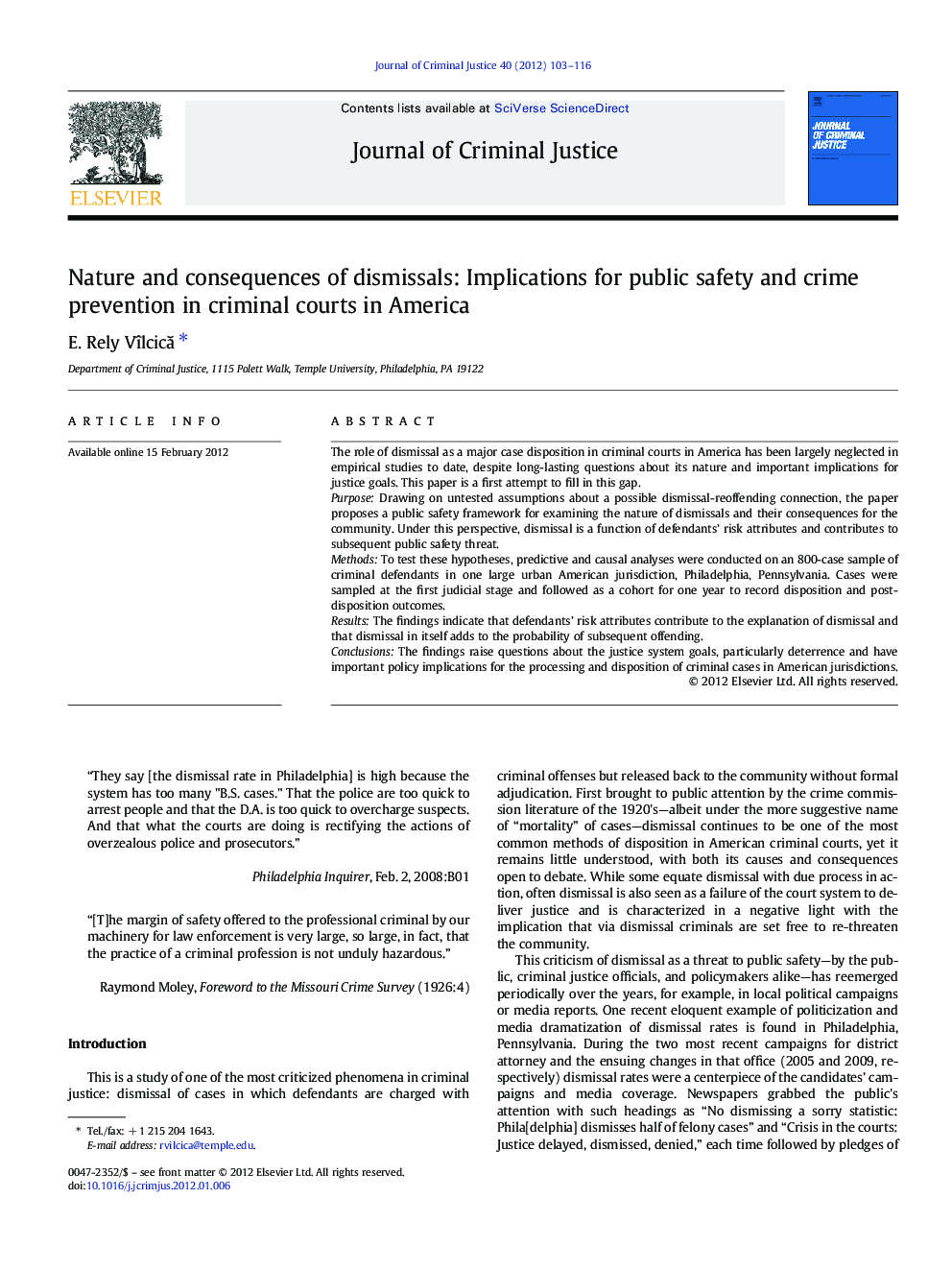| Article ID | Journal | Published Year | Pages | File Type |
|---|---|---|---|---|
| 882835 | Journal of Criminal Justice | 2012 | 14 Pages |
The role of dismissal as a major case disposition in criminal courts in America has been largely neglected in empirical studies to date, despite long-lasting questions about its nature and important implications for justice goals. This paper is a first attempt to fill in this gap.PurposeDrawing on untested assumptions about a possible dismissal-reoffending connection, the paper proposes a public safety framework for examining the nature of dismissals and their consequences for the community. Under this perspective, dismissal is a function of defendants’ risk attributes and contributes to subsequent public safety threat.MethodsTo test these hypotheses, predictive and causal analyses were conducted on an 800-case sample of criminal defendants in one large urban American jurisdiction, Philadelphia, Pennsylvania. Cases were sampled at the first judicial stage and followed as a cohort for one year to record disposition and post-disposition outcomes.ResultsThe findings indicate that defendants’ risk attributes contribute to the explanation of dismissal and that dismissal in itself adds to the probability of subsequent offending.ConclusionsThe findings raise questions about the justice system goals, particularly deterrence and have important policy implications for the processing and disposition of criminal cases in American jurisdictions.
► The study examines dismissal as case ending decision and its consequences for public safety. ► Impact of dismissal: Dismissed defendants more likely to reoffend net of controls. ► Questions about deterrence and implications for processing and dispositions of criminal cases.
